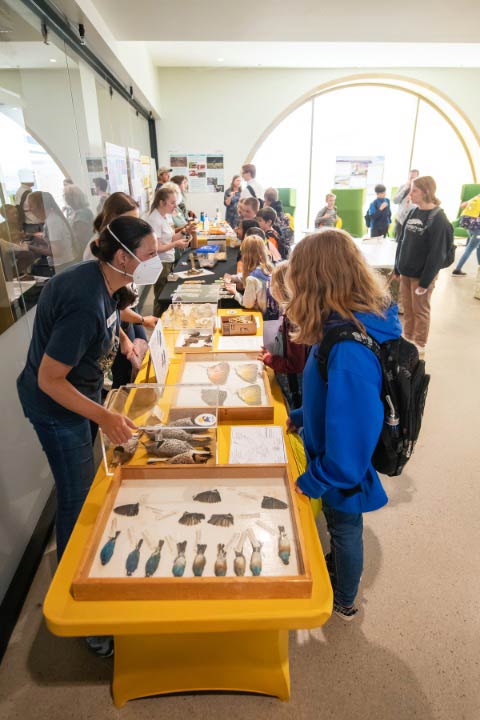
How Does a Bachelors Degree Differ From a Masters Degree?
Alexandra P.
Published December 12, 2022
6 Minute Read
When beginning to apply for master's programs, I felt unsure. There were a lot of
unknowns, and I didn’t know what to expect as I navigated a new terrain.
A master’s degree and a bachelor’s degree look different in many ways. Here are a
couple of things you may want to know as you navigate becoming a graduate student:
1. Research
Bachelors:
At the bachelor's level, you may not have completed any research. When considering applying for graduate school, you will need to demonstrate your understanding of research, your research interests and ideas you may have for your future thesis or dissertation.
Masters:
Some programs may not require research, for others your research will be foundational. Depending on your program you may begin working toward your research in your first semester. Other programs may require you to build up to your research project of choice. There are many graduate-level programs where research will be your main focus.
2. Schedule
Bachelors:
As an undergraduate, there can be a lot of flexibility in setting your schedule. Typically, an advisor will support you in establishing a schedule based on your major. Classes often last an hour to an hour and a half for a bachelor's student, and you will likely have these classes multiple times throughout the week. Typically, students at this level will take 12-15 credits a semester or four courses. For each credit, students are recommended to study for about 2 hours outside of class.
Masters:
As a master's student, there may be significantly less flexibility in your course schedule. Some classes may only be offered once a year or once every couple of years, depending on your program. Due to this timeline, advising may not be required. Graduate student classes may be about three hours long and held only once a week. Full-time at the master's level is 9 credits, which is usually three courses. Often graduate students spend a lot more time outside of class preparing for lectures and discussions. It is recommended to spend about three times the amount of time you spend in class on coursework, including reading, assignments, internship or time spent in the lab.

3. Time Management
Bachelors:
As a student at the bachelor's level, you have a lot of flexibility and responsibility that you must learn to balance. You have more choice in when you attend many classes, how you balance your study time, and if you work on campus, you may have a schedule that flexes around your coursework.
Masters:
Time management is essential in graduate school. It can be challenging to juggle classes, clinical work, research, teaching responsibilities and any employment you may have. You will almost always be able to find something you should work on. With all these responsibilities in mind, building time to rest and recharge is also important to be successful. Balancing your needs with your degree needs will be helpful in preventing burnout.

4. Class Size
Bachelors:
At times your bachelor's level classes may be in large auditorium-style classrooms. At other times, typically later in your degree, you will likely have smaller classrooms with people who share your major.
Masters:
My master's program operated in the cohort model, meaning I worked with the same small class throughout my degree program. I found this model to be incredibly supportive and meaningful, as many of my peers were experiencing similar circumstances. Whereas some programs may have a common class amongst people admitted with you, other classes in your schedule may be an elective.
Your bachelor's degree likely had more flexibility in how you managed your time, including your decision to go to class. At the graduate level, your instructors are more likely to notice if you are not there, and you will have significantly more to catch up on for lectures and discussions. Attendance is imperative to being successful in a graduate program.

5. Expenses
Graduate-level classes often have higher tuition for courses. Students should expect to pay about $300 per credit hour at the graduate level in 2022. Undergraduates should expect to pay about $160 per credit hour. Depending on your residency status, program specifics, scholarships, fees and other financial aid, these rates may be different for your program. For updated information, visit Student Financial Services. When considering your degree and funding you may want to consider what your future income will be to lessen potential loans.

6. Funding Opportunities
Bachelors:
Depending on your situation, funding opportunities may be essential in supporting your education. Students may have access to scholarships, grants, work-study and other financial aid at the bachelor's level.
Masters:
As a master's student, you can apply for graduate assistantships to fund most of your degree. These assistantships are dependent on your department and program. Often these assistantships can be found in areas relating to research, teaching and administration. There are also some fellowships and scholarships available to graduate students. To review updated graduate assistantship information visit Graduate Assistantships.

Planning on applying? Here is what you should know:
I recently had the opportunity to sit with the Graduate Student Network and learn about their experience applying to graduate school. The panel of graduate students in a variety of fields offered this:
In considering why they chose to apply, many offered that they hoped to deepen their
knowledge in a specific subject area. Some expressed wanting to be more competitive
in the job market. At the same time, others shared their desire to become a leader
in their field. Having a clear understanding of why you are interested in pursuing
a graduate degree is essential in the application process.
In selecting Universities to apply to, graduate students recommended that you develop
relationships with your professors. They know the layout of your field already and
may be able to connect you with mentors that will be an excellent fit for your desired
research area. Some students recommended that students reach out to the professor
they hope to work with early in the application process to explore what that relationship
would look like. Finding a professor/mentor you work well with is beneficial to your
graduate education as you may be working closely for several years.
When asked if the current graduate students recommended attending graduate school
immediately following a bachelor's degree, the results were mixed. Some noted that
taking a break allowed them to build their resume and skills needed for their degree
program. While others appreciated the momentum, they had in continuing their education
right away. Overall, do what is right for you and be prepared to be flexible.
Be organized in how you navigate the admissions process. Some students recommended
having a method of organizing the schools you are applying to, to help keep track
of deadlines. This may be Excel sheets or planners. Others mentioned that the purpose
statement is essential in supporting potential mentors in getting to know you; start
on these early and write specific statements for each application. The panel also
explained the importance of keeping track of any testing that may need to be completed
before the application deadline. There is a lot that goes into each application, pay
close attention to these details.
The path to graduate school can be an overwhelming experience; however, it becomes
much easier when you seek support in the application process. Ask your professors,
and current graduate students and contact the University of Wyoming's School of Graduate
Education.
Ready to apply to UW?
Apply Now
